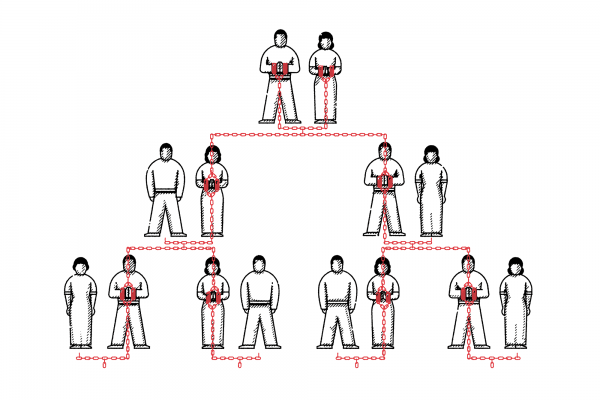IN MAY, DELEGATES at the annual convention of the Episcopal Diocese of Maryland voted unanimously to affirm the principle of reparations for the uncompensated labor of enslaved persons. In a diocese that is more than 90 percent white, there was not a single nay vote. How did this happen?
The issue of reparations is mired in emotion, often mischaracterized, and largely misunderstood. The economic, political, and moral dimensions are difficult to grasp. Some of us have an emotional response to the word, but when reparations are fully and fairly explained, Americans want to do the right thing.
Everyone living in our great nation has inherited a mess created by the institution of slavery. None of us caused this brokenness, but all of us have a moral responsibility to fix it.
For generations, the bodies of black people did not belong to themselves, but were bred, used, and sold to attain wealth. Our nation prospered from this evil, race-based system of chattel slavery. Many of our institutions—including, sadly, the church—profited as well. However, a structure with a broken foundation cannot hope to stand. It must be repaired.
Reparation, quite simply, means to repair that which has been broken. An act of reparation is an attempt to restore, atone for, reconcile, and make amends for a wrong or injury. It is not only about monetary compensation. It is not the transfer of money from white people to black people. It is what this generation will do to repair the damage caused by previous generations.
As the prophet Isaiah said: “If you remove the yoke from among you, the pointing of the finger, the speaking of evil ... [then] your ancient ruins shall be rebuilt; you shall raise up the foundations of many generations; you shall be called the repairer of the breach, the restorer of streets to live in” (58:9-12).
After the hard-fought abolition of slavery in our nation, reparations were denied for freed African-American people to compensate for their centuries of undeserved bondage, even though many white plantation owners received reparations for the losses they incurred from the Civil War and the end of slavery. As Ta-Nehisi Coates said in his congressional testimony, “enslavement ‘shaped every crucial aspect of the economy and politics’ of America, so that by 1836 more than $600 million, almost half of the economic activity in the United States, derived directly or indirectly from the cotton produced by the million-odd slaves. By the time the enslaved were emancipated, they comprised the largest single asset in America.”
We can celebrate the strides made in racial attitudes in our country and be proud of the accomplishments of many black individuals who have overcome great odds. But for the millions of descendants of slaves trapped in a pernicious cycle of hopelessness, poverty, and rage due to their real experience of racial segregation, redlining, inferior schools, and the like, the widespread assumption that everyone can pull themselves up by their bootstraps is a lie. They know that the odds are against them on many fronts: They cannot change their environment, and they cannot change the color of their dark skin.
The Bible mandates leaders to be held accountable for the fair and equal treatment of all who inhabit the land. However, we must acknowledge that there can be no love without justice, and there can be no justice without repairing injustice. I believe America is ready to do this long-overdue work.
Many of my white friends ask me: “What do black people want? Haven’t we done enough?” I want to turn the question around: “What do you want? What kind of America do you want to live in?” If you are happy with the state of race relations now, then don’t do anything. But if you want a reconciled nation, then a public conversation on reparations needs to happen. Congress and the American people need to support legislation to study proposals for monetary and nonmonetary reparations to the descendants of the victims of slavery. Today, making restitution is our generation’s task.
This commentary is adapted from Sutton's congressional testimony given in June in support of H.R. 40, a bill to establish a commission to develop proposals for reparations for African Americans.

Got something to say about what you're reading? We value your feedback!





